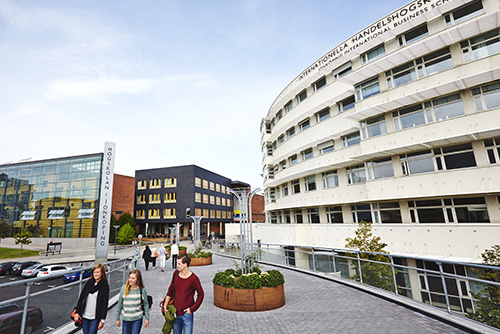Jönköping University to lead national project on international collaboration

Swedish industry has become forcibly globalized in recent decades. To be able to advance and contribute to social development, Swedish universities must develop their interactions with the international business world. Jönköping University is now launching a new national project together with seven other universities.
The internationalization of the Swedish academic world is at different levels in different subjects and at different universities.
“International activities at universities usually take place within education and / or research, but are rarely linked to collaboration with companies and the public sector. The universities’ next challenge is to build complete knowledge environments internationally, and collaboration will be as needed there as it is in the national arena”, says Mats Jägstam, Vice President of Jönköping University and Project Manager for the national initiative.
The project will strengthen the academy's knowledge and ability to collaborate with business and public activities from a global perspective. In addition to Jönköping University, which is leading the work, the initiative involves Örebro University, Mid Sweden University, Linköping University, Malmö University, Royal Institute of Technology, University of Skövde and University of Gävle. The project will run for three years and is supported by Vinnova, Sweden's Innovation Agency.
Each university will work with sub-projects that include international research collaboration, student exchange linked to internship and graduate work with companies abroad, as well as assignment training at the international level. The work will lead to strategies and procedures for international cooperation.
“By defining internationalization in collaboration, the academy will increase the quality of education and research. As the innovation capacity of students, teachers, researchers and partners is strengthened, opportunities will develop for Swedish global companies to use Swedish universities even more in research, development and competence – and thus enhancing their competitiveness” say Mats Jägstam.
